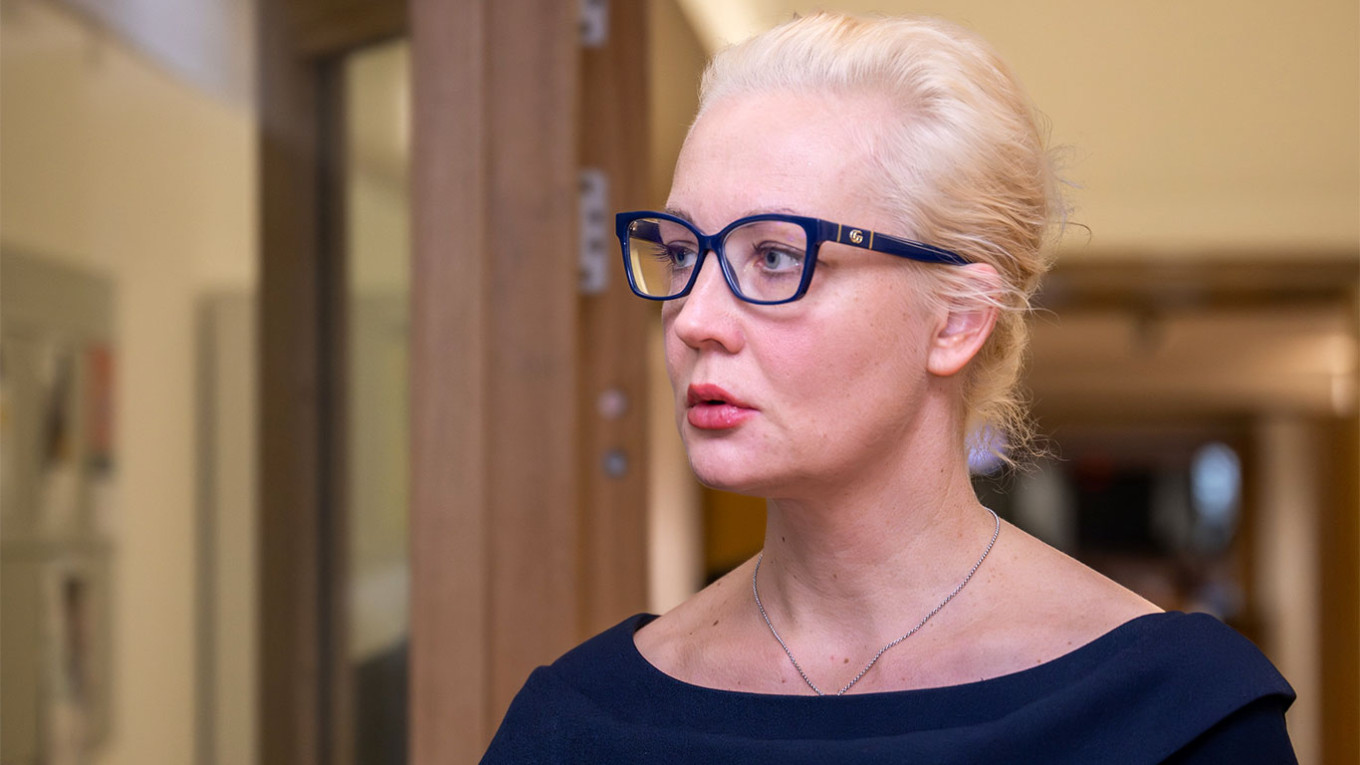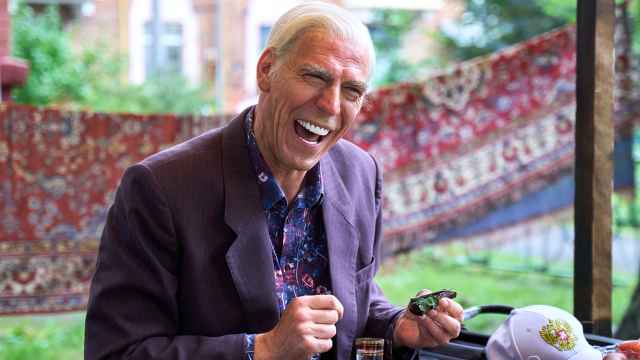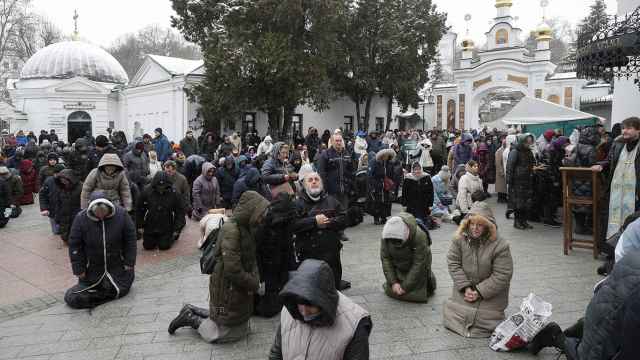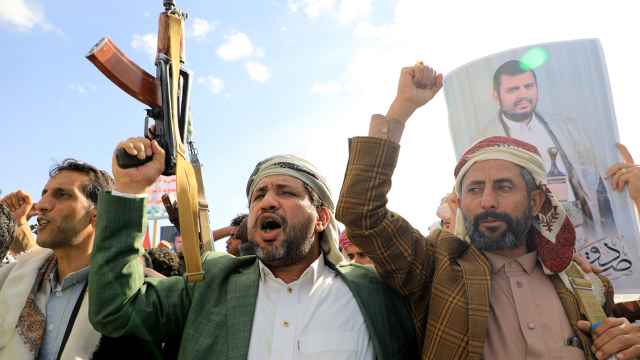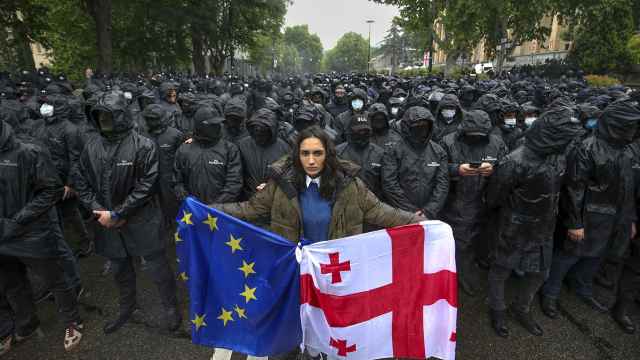Since Alexei Navalny's presumed assassination in the confines of Russia's remote "Polar Wolf" prison, the fractured landscape of the nation's opposition movement appears to be undergoing a potential shift.
Prior to this tragic event, exiled opposition leaders remained embroiled in internal disputes regarding the presidential elections, disagreements over strategy, blame for the denial of Nadezhdin's candidacy, and broader responsibility for the ongoing war. However, the news of Navalny's demise has seemingly acted as a catalyst for paving the way for a more unified front.
Yulia Navalnaya, Alexei's wife, swiftly emerged as a resolute figure. While tributes to Navalny poured in from supporters worldwide, with memorials erected and countless eulogies delivered by fellow opposition members, Navalnaya's actions transcended mere expressions of grief. She provided unwavering support to those grieving, actively advocating for increased media attention to her husband's legacy.
More significantly, Navalnaya demonstrably gained access to the political arena of the Western world. She secured meetings with world leaders including the President of the United States and EU ministers in Brussels. Notably, her address to the European Parliament is a moment.
This rapid ascent, coupled with the global wave of sympathy surrounding Alexei Navalny's death, has positioned Yulia as a potential unifying figure within the fragmented Russian opposition. Her unwavering declaration that she would continue her husband’s work resonated deeply with supporters all over the world, and further solidified her potential to become a powerful symbol for the movement.
Before Navalny’s passing, Navalnaya primarily operated behind the scenes, often perceived as the supportive spouse of a prominent politician. However, as a graduate of the Plekhanov Russian University of Economics with a background in banking she has a depth of experience that extends beyond mere domesticity. Navalnaya actively supported her husband's work, even contributing directly to his activities. Navalny even joked she was more “radical” than he was.
History offers parallels to Yulia Navalnaya's potential role. Corazon Aquino, in the Philippines, serves as a particularly striking example. Much like Yulia, Aquino's husband – a leading political figure – was assassinated for challenging an authoritarian regime. Fueled by grief and outrage, Aquino rose to national prominence, ultimately leading the 1986 People Power Revolution and ending Ferdinand Marcos’ two-decade-long dictatorial rule.
Russia itself boasts similar figures. Elena Bonner, wife of the famed dissident Andrei Sakharov, continued his legacy by establishing a foundation in his name and even participated in the 1991 coup that toppled the Soviet Union. Similarly, Nadezhda Krupskaya tirelessly advocated for her husband, Vladimir Lenin, and even played a role in preserving his legacy after his death.
Russian online discourse has likened Navalnaya to Olga of Kyiv, a Kyivan princess from the 10th century who vowed revenge against her husband's killers. She massacred the men responsible for her husband’s demise, and laid siege to their capital. While Olga's actions undeniably solidified her power, it's crucial to distinguish her ruthlessness from Navalnaya's potential path of political leadership and advocacy.
Overall, the support for Navalnaya is high amongst both Russians opposing the current regime and opposition leaders. Public demonstrations of this sentiment have been undeniable. Kilometers-long queues formed at Navalny's gravesite, punctuated by chants of "No war" and "Putin is a killer" – slogans rarely heard on Russian streets in recent years. Memorials have sprung up across the globe, uniting people of diverse political backgrounds in a manner reminiscent of Navalny's 2012 protests on Bolotnaya Square.
Exiled opposition leaders have issued countless statements expressing their grief and support for Yulia. However, some, including Sergei Guriev and presenters of TV Rain, initially have expressed a more nuanced perspective. While remaining positive or neutral towards Yulia personally, they have raised concerns about certain of Alexei's past views, predating his prominent political career. Additionally, questions have been raised over Yulia’s potential suitability for a formal leadership role within the opposition due to her lack of formal political experience and overall state of the pro-Navalny opposition within Russia.
The exiled opposition's fractured state and lack of consensus on crucial issues have demonstrably sapped public morale. Sanctions, championed by some opposition leaders, have also become a source of contention, as they have negatively impacted ordinary Russians both domestically and abroad. These consequences include limitations on travel, increased isolation due to sanctions, and difficulties for Russian emigrants, such as denial of access to banking and other essential services. This widespread sense of fatigue and disillusionment with the opposition was undeniable. However, Yulia Navalnaya's address to the European Parliament appears to have rekindled a spark of hope within these very same weary citizens.
"There are tens of millions of Russians who are against Putin, against the war [in Ukraine], against the evil he brings. We must not persecute them – on the contrary, you must work with them. With us.”
And those words seemingly served as a much-needed spark, rekindling a sense of purpose within the Russian opposition. Her yet untarnished reputation, combined with Navalny’s legacy and the undeniable need for greater diversity within the opposition movement have all coalesced to position Yulia as a potential symbol of hope. However, for this potential to be fully realized, certain conditions must be met.
Firstly, she benefits from the continued high regard in which her husband is held. His enduring legacy, burnished by his long confinement and unwavering resolve, casts a positive light on Yulia.
Secondly, her activities remain distinct from those of the Anti-Corruption Foundation (FBK), which has faced public criticism from other parts of Russia’s opposition. This distinction could allow Yulia to avoid inheriting any potential liabilities associated with the FBK.
Thirdly, her numerous past interviews alongside Alexei have undoubtedly shaped public perception in her favor. If she continues to uphold that perception, she will gain more trust than most of the other politicians.
Finally, her family’s relative absence from Russia's online spheres, particularly the often-contentious X, former Twitter, landscape, has helped her maintain a more untouched image.
The recent events in Russia – from the elections to the protests and the terrorist attack – underscore the urgency of building a united and effective opposition. The Putin regime's continued suppression of dissent, its disregard for human rights, and its aggressive foreign policy have created a climate of fear and instability within Russia. The people's yearning for change is evident in the large-scale protests abroad and the growing discontent within the country, including the wives and mothers of mobilized soldiers.
Yulia Navalnaya, with her unique position and potential for broad appeal, could be a catalyst for uniting the fractured opposition. Her ability to connect with diverse groups, her unwavering commitment to democratic values, and her international recognition could be instrumental in building a strong and cohesive movement. However, this requires strategic action, collaboration among opposition groups, and a clear vision for the future of Russia.
The coming months and years will be critical in determining whether Navalnaya and the opposition can capitalize on the shifting political climate and offer a viable alternative to the current regime. The need for unity, strategic planning, and unwavering commitment to democratic principles has never been greater. The future of Russia hinges on the opposition's ability to overcome their differences and work together towards a common goal.
A Message from The Moscow Times:
Dear readers,
We are facing unprecedented challenges. Russia's Prosecutor General's Office has designated The Moscow Times as an "undesirable" organization, criminalizing our work and putting our staff at risk of prosecution. This follows our earlier unjust labeling as a "foreign agent."
These actions are direct attempts to silence independent journalism in Russia. The authorities claim our work "discredits the decisions of the Russian leadership." We see things differently: we strive to provide accurate, unbiased reporting on Russia.
We, the journalists of The Moscow Times, refuse to be silenced. But to continue our work, we need your help.
Your support, no matter how small, makes a world of difference. If you can, please support us monthly starting from just $2. It's quick to set up, and every contribution makes a significant impact.
By supporting The Moscow Times, you're defending open, independent journalism in the face of repression. Thank you for standing with us.
Remind me later.


